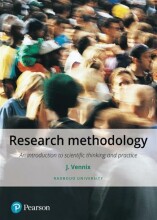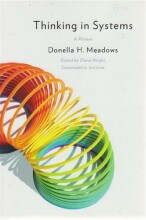From data to theory - Case study
4 important questions on From data to theory - Case study
How do you select a case and what does Eisenhardt prefer?
The foundation of the critique on case study research is in the research paradigm. What are the three main critiques on this research design?
2. Question whether ambiguous conclusions can say much about the setting of the research.
3. Without rigor, relevance cannot be claimed.
Standardizing analytical techniques is hard due to variety in forms and range of sources. Yin suggests 5 analytical techniques. Note that this list is far from complete. What's the difference between pattern matching, explanation building, time series, logical models and cross-case synthesis?
Explanation building; comparing propositions about causal patterns and links for further investigations. Its about finding out why things happen.
Time series; tracking event sequence over time.
Logical models; matching series of iteration with predicted outcomes.
Cross-case synthesis; comparing data from different cases across a uniform framework.
- Higher grades + faster learning
- Never study anything twice
- 100% sure, 100% understanding
What are the two mythes of case study research design? Elaborate on the latter using the alternatives for generalizability;
- moderatum, analytical refinement, naturalistic, isomorphic
- some sources you use in triangulation might contradict each other, and others remain silent. It's the researchers responsibility to voice expression of who remains silent.
Mythe of generalizability;
- This is a matter of judgement.
- 4 types beyond statistical generalization;
* Moderatum; similar structures would have similar characteristics.
* Naturalistic (popular); transferability; application to your own context.
* Analytical refinement (popular); generalize from experience and observation to theory
* Isomorphic learning; lessons from an event that can be applied in other settings (this is a type of naturalistic generalizability).
The question on the page originate from the summary of the following study material:
- A unique study and practice tool
- Never study anything twice again
- Get the grades you hope for
- 100% sure, 100% understanding
































